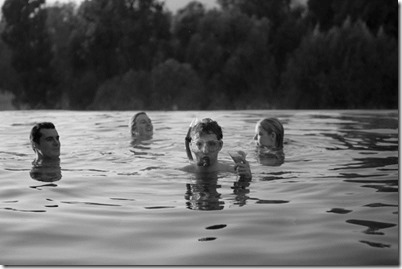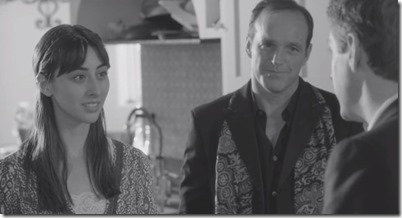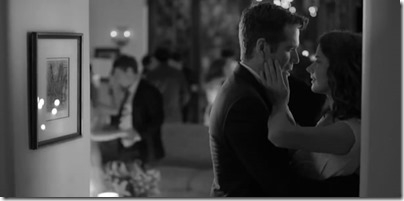The best movie I’ve seen so far this year is a microbudgeted adaptation of William Shakespeare’s Much Ado About Nothing as adapted and directed by Joss Whedon – who shot the film with a small army of friends, in his house, in twelve days during a break between the end of shooting Marvel’s The Avengers and beginning to edit it.
Much Ado About Nothing is generally not considered one of Shakespeare’s major works, being, as it is, a romantic comedy (well, the proto-romantic comedy) and not particularly political in usual sense of the word. Indeed, the players speak of wars – one of them apparently a traitor to his leader and brother – but the politics here are of both a lesser and grander sort: to wit, to woo.
There are two basic plot arcs: Benedick (Alexis Denisof) loathes Beatrice (Amy Acker) who despises him in turn – wholly because of a past one-night stand; and Don Pedro’s second, Claudio (Fran Kranz) is head-over-heels for Beatrice’s cousin Hero (Jillian Morgese).
Prince Leonato (Clark Gregg), Claudio and Don John (Reed Diamond) stage a conversation to persuafe a snooping Benedick that Beatrice loves – while Hero and the maid, Margaret (Ashley Johnson) contrive a similar conversation to persuade Beatrice that Benedick loves her. Meanwhile Don Pedro’s traitorous brother, Don John (Sean Maher) sets up a situation with his confederates Borachio (Spencer Treat Clark) and Conrade (Riki Lindhome) that shows Claudio his love’s apparent wanton behavior with another man.
Of course it all gets sorted in the end – partly due to a clever ruse by the priest (Paul Meston) who was to perform Claudio and Hero’s wedding and partly because of the fortuitous bumblings of the local constabulary, led by Dogberry (Nathan Fillion).
When Much Ado was written, it was very much a current work but its currency has never been lost – hundreds of romantic comedies and sitcoms later, it feels as fresh as the day it was written. Whedon has taken its plot contrivances and suggested that they come about as a result of a bit too much partying and drinking and the inevitable fuzzy thinking that can arise at those times.
He also stays away from plummy accents and period flourishes – his Much Ado is set in the present (it was filmed at his home – and I want his house!) and the cast speaks in their natural American accents. The result is a film that plays as real as it could possibly be – and since people have behaved in such manners for hundreds (of not thousands) of years, he has rendered Shakespeare as relevant to us as the best of Robert Altman or Lisa Cholodenko.
Much Ado might be a bit rough – it was shot in less than two weeks, after all, and was pared down from a substantially longer play (the film runs 109 minutes) – but that, too, is to Whedon’s advantage. Because it’s absolutely perfect, it feels more personal and more true. And the gorgeous black & white cinematography (by Jay Hunter) is crisp and clean and allows every nuance of the cast’s performances to shine through (not to mention making the Whedon home look as cool as possible).
The Avengers might be the pinnacle of superhero movies, but Whedon’s Much Ado About Nothing may be the better film.
Final Grade: A+


